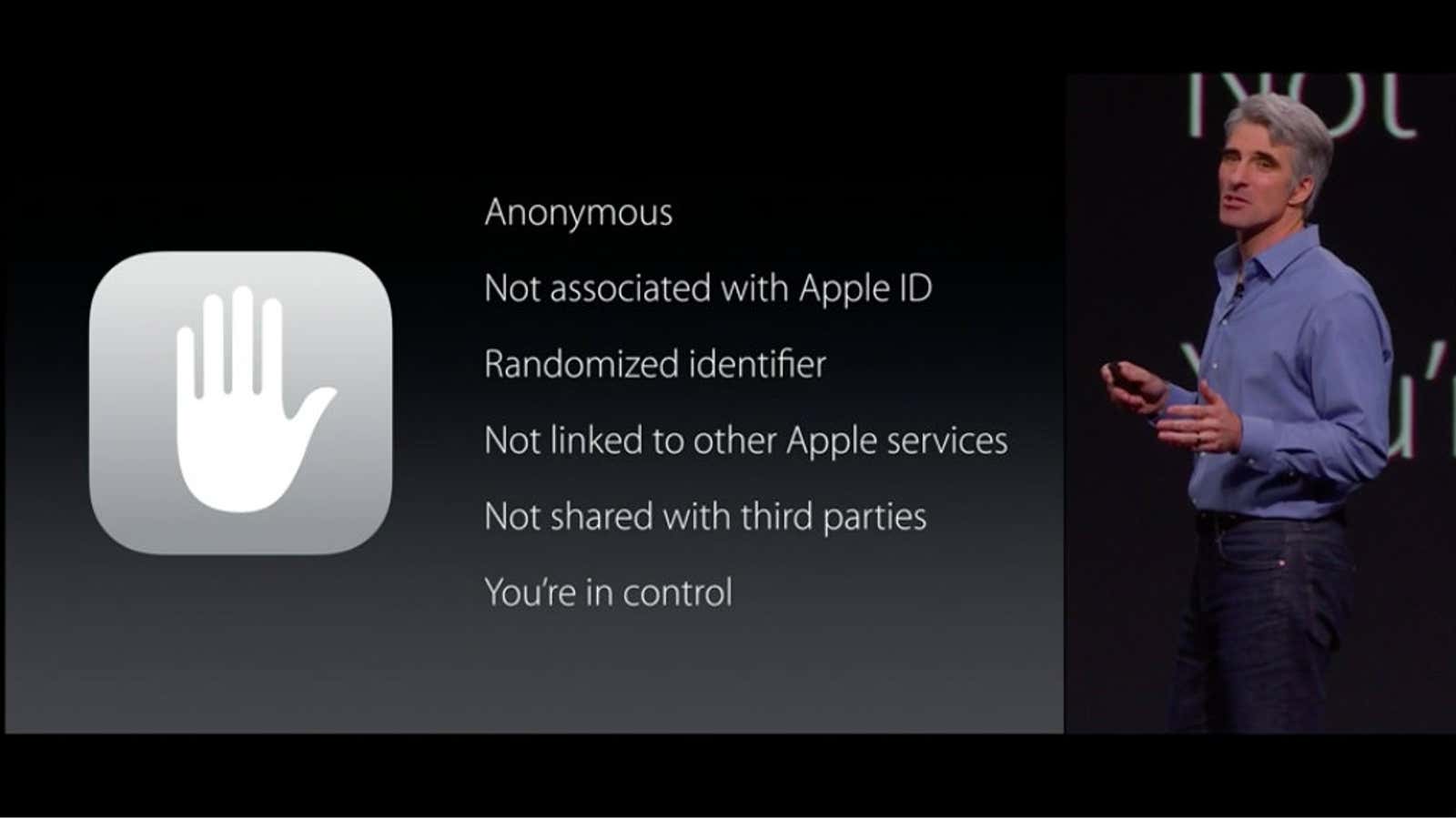Last week, Apple CEO Tim Cook made a speech that—since it’s Apple—was widely picked up everywhere. While the full text of the speech was not made available, the bits TechCrunch and everyone else cited focused on user privacy:
I’m speaking to you from Silicon Valley, where some of the most prominent and successful companies have built their businesses by lulling their customers into complacency about their personal information… They’re gobbling up everything they can learn about you and trying to monetize it. We think that’s wrong. And it’s not the kind of company that Apple wants to be.
This is, of course, a thinly veiled reference to Google and Facebook. It is not the first time. In September 2014, Apple released a long blogpost saying essentially the same thing: We are safe custodians of your data. We don’t sell it or try to profit from it.
It was always obvious that Apple was making the point for a purpose. Some conjectured it was to reassure people about its health apps on the iPhone and its watch. But yesterday, at Apple’s annual developer conference, it became clear.
Catching up in context
Apple lags behind Google, Facebook, and even Microsoft in the new battle for user attention: Prediction. A combination of several factors, including the prevalence of devices, sensors, and, by extension, data has made it harder than ever for people to stay on top of their digital lives. If Facebook didn’t filter your feed for you, imagine just how many more baby pictures you’d have to scroll through.
Google, the ur-data company, figured this out several years ago and launched Now, a context-aware app that aims to predict what you need before you know yourself. This include such quotidian matters as reminding users to carry an umbrella if it’s going to rain. Microsoft’s Cortana is also a useful personal assistant. Siri, while much touted, remained hobbled by its limited resources.
All of that is changing. The Apple Watch is essentially Google Now for your wrist. Its purpose is not to replace the phone for interaction, but for notifications and ultra-quick reactions.
For that it needs to know a lot more about you, including where you are and what’s inside all of your phone apps. The new operating system for Apple’s iPhones will also be better at tying together different bits of information. Got a call from an unknown number? Your iPhone will scan your email and make a guess.
Hang on. Apple reading your email? That’s the sort of thing we all cry blue murder about when Google does it.
But Apple, argues Apple, does not pass along your data to third parties or use it to profile you. It only uses it to make your services better. This is a seductive (and also probably reductive) argument, but it strikes at an undenial truth about the internet business in 2015: no company can hope to survive without access to user data.
We had better get used to them reading our emails and our texts and our Spotify playlists. Some of these firms will use our data to create rich user profiles in order to sell us things. Others focus on creating deep surveillance mechanisms in order to figure out whether we bought the things we’ve been advertised. But a web giant that does not collect user data may as well shut shop and go home.
The best we can hope for is that Apple sticks to its principles.




